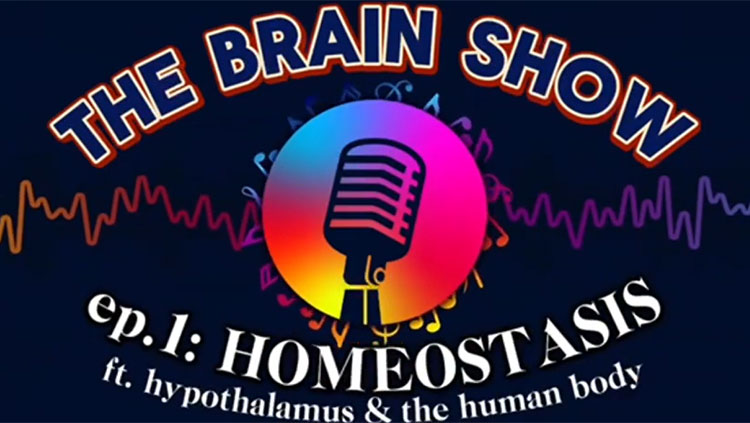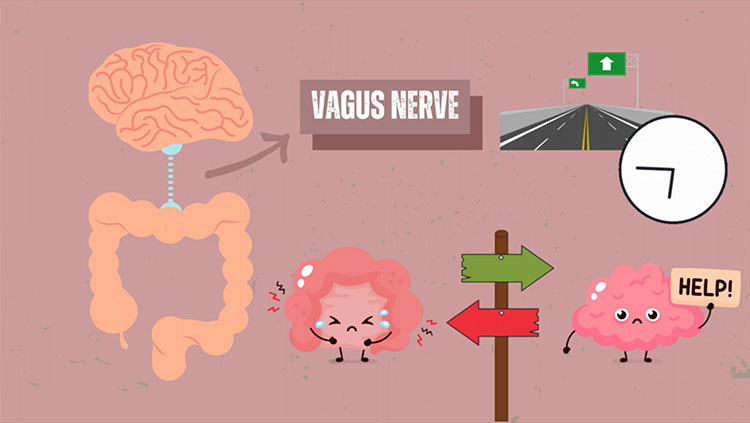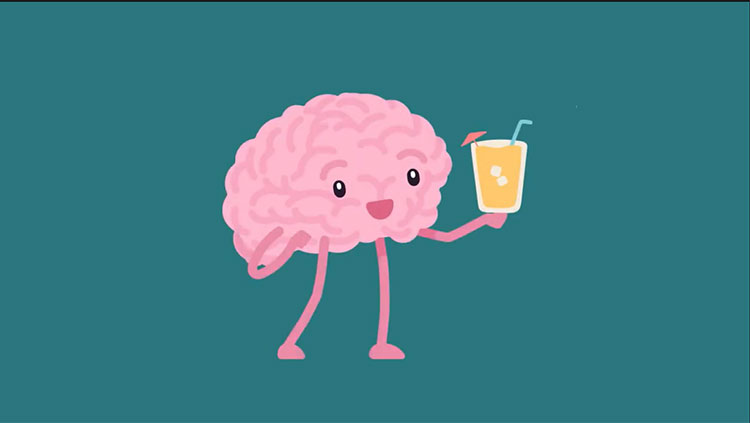This Is What Happens in Your Brain During a Hot Flash
- Published4 Nov 2021
- Source BrainFacts/SfN
Hot flashes hit your body with an immediate sense of warmth. They can range from mild to severe, last anywhere from 30 seconds to 10 minutes, and can pop on rare occasions or recur repeatedly for years. This unexpected warm feeling stems from lower levels of estrogen, which fire off neurons in the hypothalamus that control temperature regulation.
Storyboard and animation produced by Midnight Snacks for BrainFacts.org.
Scripting by Chia-Yi Hou.
Editorial Production by Tristan Rivera and Juliet M. Beverly.
Scientific Review by Pauline Maki.
CONTENT PROVIDED BY
BrainFacts/SfN
Transcript
You’re chilling [fast-forwarding TV] on the couch when something in your body shifts [whoop]. A warm sensation suddenly hits you all over your arms, neck, chest, and face [swash]. The sensation might be so severe that you want to peel off your layers [woosh]. This is a [clink] hot flash, or hot flush. [Whoop, time ticking] Sometimes the symptoms can last for 30 seconds, but for some people – it can last [ding] up to 10 minutes.
When a hot flash occurs, your body [click, fan whirring] tries to get rid of the heat. Blood flows to your skin’s surface, making you look flushed or red [woosh]. The heat can transfer from your skin, making you sweat, and cooling you down [swish].
In the brain, your hypothalamus is at the center of all this action [woosh]. A set of cells in the arcuate nucleus and preoptic area of the hypothalamus, called KNDy neurons, help control body temperature. When these neurons are stimulated, they influence your body’s temperature regulation [accelerating zing]. And boom [boom]. Hot flash.
Lower levels [digital bings] of the hormone estrogen lead KNDy neurons [swoosh] to fire off when they aren’t needed, a common symptom of menopause. It’s also a symptom of hormone treatments for prostate cancer. Not all people [whoop] experience hot flashes in the same way. For some [swoop], they are severe [ticking] and can persist for years [swoop]. And for others, they’re mild and quickly pass.
[Light splash, swoosh, light splashing]
What to Read Next
Also In Body Systems
Trending
Popular articles on BrainFacts.org


















